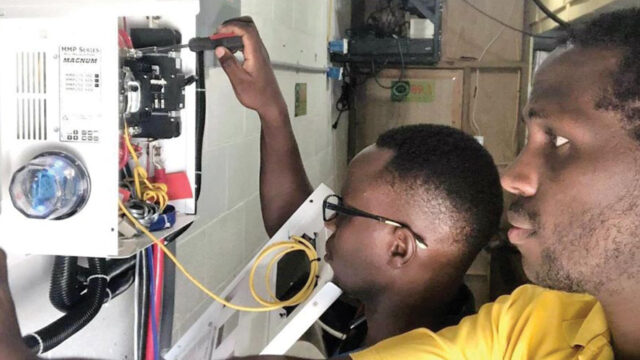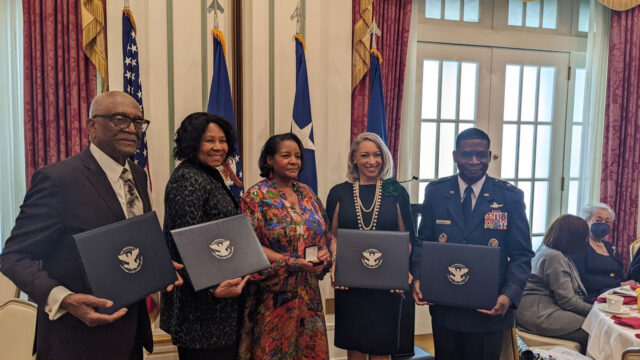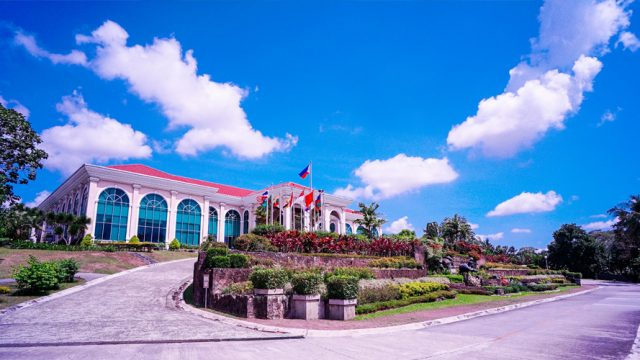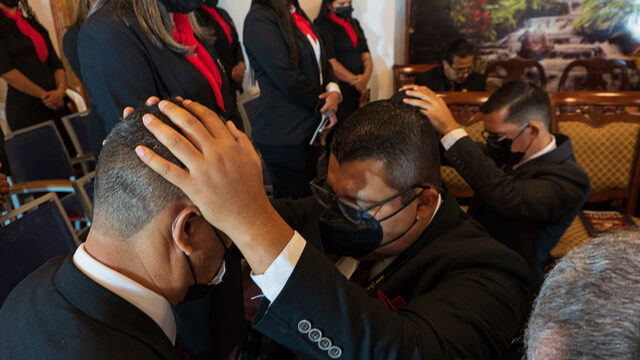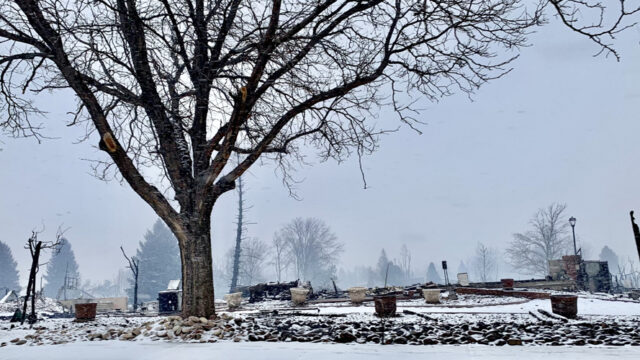Where do we draw the line between self-preservation and service to others?

A few years ago I attended Voices for Justice, an annual event organized by Micah Australia. Its purpose: to inspire, train, and equip Christians to speak with federal politicians about global poverty.
As the years have passed, the exact details of the weekend in Canberra have faded. But one activity has ingrained itself in my memory — a simulation activity.
The hundreds of attendees were split into smaller groups — “families” we were called — and briefed on our mission. We were to make our living by catching and selling “fish” (laminated pictures) at the local “market” (event organizers who would swap the fish for tokens of money). With no savings, we had to ensure we were making enough money each day to feed our family and, if possible, secure shelter and send our children to school. The only problem was that every “family” had the same brief.
Chaos ensued. My competitiveness kicked in, and it became a race against the other attendees to collect the most fish each day so I could ensure my family was fed and educated. As the organizers removed more and more fish from the river, we decided to pull our kids out of school so we could send them fishing too. As the activity wore on, we were only just scraping through with enough money to feed our family. Thoughts of education and more permanent shelter options were gone. Our sole focus was earning enough money to feed ourselves.
By the time the organizers announced the end of the activity, I had become ruthless in my fishing efforts, and my family had lost a child to a cyclone due to our lack of sufficient shelter.
It may have only been a simulation activity that lasted for less than an hour, but in that short time I had become an obsessed, self-centered person, with little care for anyone else. Not only that, but I gained a glimpse into the reality facing thousands of families around the world. An hour-long exercise for me is the reality of their life — trying to make ends meet in less-than-favorable circumstances.
That night I went to sleep with a full stomach in a comfy bed with a roof over my head. I didn’t have to worry about where my next meal was coming from or if I could afford to sacrifice time and income to gain an education. I went to bed completely aware of how blessed I am. And with that came the overwhelming knowledge that it is my duty as a Christian to campaign for others so they may experience the same basic rights that I have.
It’s natural to want to take care of ourselves. Self-preservation is necessary to get by in a world corrupted by sin. But if, like me, you have the luxury of knowing where your next meal is coming from, then we have a God-given duty to help someone who doesn’t, whether they be your actual neighbor or a neighbor living on the other side of the world.
Poverty and injustice are everywhere in this broken world, but we needn’t be discouraged by it. Rather, let’s be the hands and feet of Jesus and actively work to seek justice and stand up for the rights of those less fortunate. While this can seem like an overwhelming job to tackle individually, if we work together as a Church, our individual efforts quickly add up.
So add your voice to petitions for positive change. Volunteer your time within your community. Donate to humanitarian organizations that are doing work in places beyond your reach. And, at the root of all of this, treat others in a way you want to be treated. Let the Seventh-day Adventist Church be a shining light in a dark world so that when people look at us, they see the harmonious, loving, and just world that God originally intended.
This commentary was originally posted on the Adventist Record news site.


